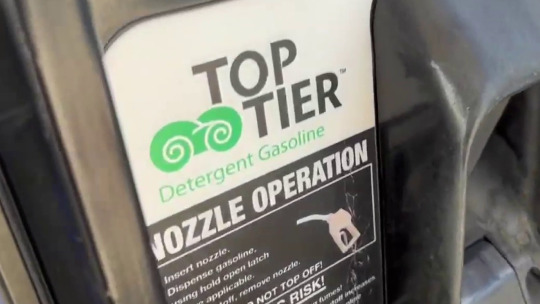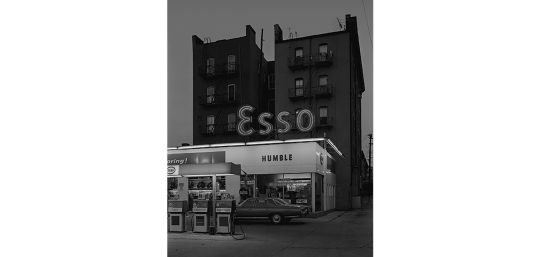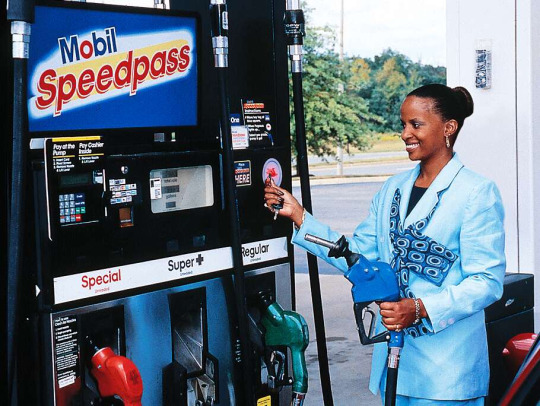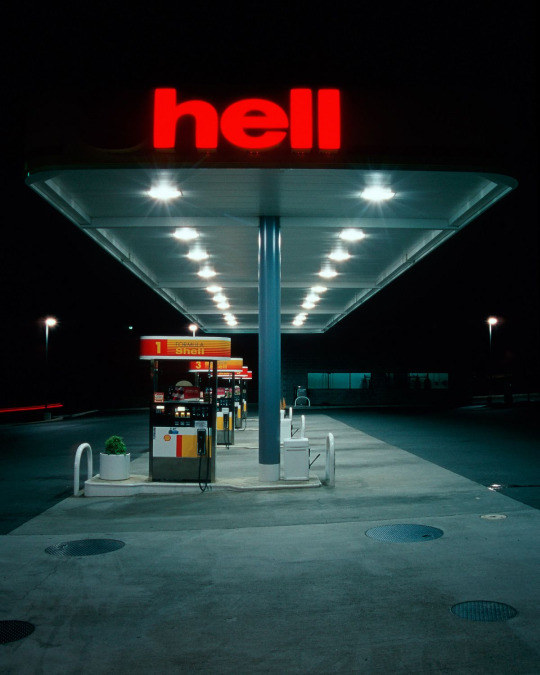#Mobil Oil
Explore tagged Tumblr posts
Text

1958
2 notes
·
View notes
Text






Our hotel room looked directly at the Magnolia Hotel, which used to be the headquarters for Magnolia Petroleum Co., and their logo might be familiar to you: the red Pegasus that became Mobil’s logo after they took over the company back in 1959, and continues to be ExxonMobil’s logo today.
The Pegasus on top of the Magnolia Hotel was a new one that was built as the old one was damaged, but the original was also restored and you can now see it by the Omni Hotel near the current convention center. This was easily one of my favorite subjects to photograph while we were in Dallas and I had some fun taking lots of pictures of it.
#travel#travel photography#vintage signs#mobil pegasus#neon pegasus sign#mobil oil#vintage neon#restored neon
2 notes
·
View notes
Text

Service with a smile.
#vintage illustration#vintage advertising#illustration#illustration detail#mobil oil#mobil gas#mobil oil corporation#oil & gas companies#oil companies#standard oil#energy companies#petroleum products#petroleum#oil & gas#pegasus
1 note
·
View note
Text

MS-18E Kämpfer
Oil on canvas
Finally finished the guy! Ready for him to dry enough so I can frame him.
#its been fun learning how to oil paint again#the color is kinda washed out in this image but the blues are much darker/richer in person#gundam#mobile suit gundam#gundam 0080#0080#war in the pocket#witp#universal century#mobile suit#art#oil paint#traditional art#painting#anime#zeon#mechs#mecha#my art#altart
352 notes
·
View notes
Photo

Amanda Greive, “An Infinite Escape”, 2023, oil on wood panel. American, b. 1978.
#amanda greive#an infinite escape#2023#oil on wood panel#american artist#oil painting#painting#art#pink#flowers#white#fabric#bed sheets#pillow#woman#portrait#mobile phone#blue#nightdress#bedroom#realism#figurative art#contemporary art
33 notes
·
View notes
Text
Twinkfrump Linkdump

I'm touring my new, nationally bestselling novel The Bezzle! Catch me in CHICAGO (Apr 17), Torino (Apr 21) Marin County (Apr 27), Winnipeg (May 2), Calgary (May 3), Vancouver (May 4), and beyond!

Welcome to the seventeenth Pluralistic linkdump, a collection of all the miscellany that didn't make it into the week's newsletter, cunningly wrought together in a single edition that ranges from the first ISP to AI nonsense to labor organizing victories to the obituary of a brilliant scientist you should know a lot more about! Here's the other 16 dumps:
https://pluralistic.net/tag/linkdump/
If you're reading this (and you are!), it was delivered to you by an internet service provider. Today, the ISP industry is calcified, controlled by a handful of telcos and cable companies. But the idea of an "ISP" didn't come out of a giant telecommunications firm – it was created, in living memory, by excellent nerds who are still around.
Depending on how you reckon, The Little Garden was either the first or the second ISP in America. It was named after a Palo Alto Chinese restaurant frequented by its founders. To get a sense of that founding, read these excellent recollections by Tom Jennings, whose contributions include the seminal zine Homocore, the seminal networking protocol Fidonet, and the seminal third-party PC ROM, whence came Dell, Gateway, Compaq, and every other "PC clone" company.
The first installment describes how an informal co-op to network a few friends turned into a business almost by accident, with thousands of dollars flowing in and out of Jennings' bank account:
https://www.sensitiveresearch.com/Archive/TLG/TLG.html
And it describes how that ISP set a standard for neutrality, boldly declaring that "TLGnet exercises no control whatsoever over the content of the information." They introduced an idea of radical transparency, documenting their router configurations and other technical details and making them available to the public. They hired unskilled punk and queer kids from their communities and trained them to operate the network equipment they'd invented, customized or improvised.
In part two, Jennings talks about the evolution of TLG's radical business-plan: to offer unrestricted service, encouraging their customers to resell that service to people in their communities, having no lock-in, unbundling extra services including installation charges – the whole anti-enshittification enchilada:
https://www.sensitiveresearch.com/Archive/TLG/
I love Jennings and his work. I even gave him a little cameo in Picks and Shovels, the third Martin Hench novel, which will be out next winter. He's as lyrical a writer about technology as you could ask for, and he's also a brilliant engineer and thinker.
The Little Garden's founders and early power-users have all fleshed out Jennings' account of the birth of ISPs. Writing on his blog, David "DSHR" Rosenthal rounds up other histories from the likes of EFF co-founder John Gilmore and Tim Pozar:
https://blog.dshr.org/2024/04/the-little-garden.html
Rosenthal describes some of the more exotic shenanigans TLG got up to in order to do end-runs around the Bell system's onerous policies, hacking in the purest sense of the word, for example, by daisy-chaining together modems in regions with free local calling and then making "permanent local calls," with the modems staying online 24/7.
Enshittification came to the ISP business early and hit it hard. The cartel that controls your access to the internet today is a billion light-years away from the principled technologists who invented the industry with an ethos of care, access and fairness. Today's ISPs are bitterly opposed to Net Neutrality, the straightforward proposition that if you request some data, your ISP should send it to you as quickly and reliably as it can.
Instead, ISPs want to offer "slow-lanes" where they will relegate the whole internet, except for those companies that bribe the ISP to be delivered at normal speed. ISPs have a laughably transparent way of describing this: they say that they're allowing services to pay for "fast lanes" with priority access. This is the same as the giant grocery store that charges you extra unless you surrender your privacy with a "loyalty card" – and then says that they're offering a "discount" for loyal customers, rather than charging a premium to customers who don't want to be spied on.
The American business lobby loves this arrangement, and hates Net Neutrality. Having monopolized every sector of our economy, they are extremely fond of "winner take all" dynamics, and that's what a non-neutral ISP delivers: the biggest services with the deepest pockets get the most reliable delivery, which means that smaller services don't just have to be better than the big guys, they also have to be able to outbid them for "priority carriage."
If everything you get from your ISP is slow and janky, except for the dominant services, then the dominant services can skimp on quality and pocket the difference. That's the goal of every monopolist – not just to be too big to fail, but also too big to care.
Under the Trump administration, FCC chair Ajit Pai dismantled the Net Neutrality rule, colluding with American big business to rig the process. They accepted millions of obviously fake anti-Net Neutrality comments (one million identical comments from @pornhub.com addresses, comments from dead people, comments from sitting US Senators who support Net Neutrality) and declared open season on American internet users:
https://ag.ny.gov/press-release/2021/attorney-general-james-issues-report-detailing-millions-fake-comments-revealing
Now, Biden's FCC is set to reinstate Net Neutrality – but with a "compromise" that will make mobile internet (which nearly all of use sometimes, and the poorest of us are reliant on) a swamp of anticompetitive practices:
https://cyberlaw.stanford.edu/blog/2024/04/harmful-5g-fast-lanes-are-coming-fcc-needs-stop-them
Under the proposed rule, mobile carriers will be able to put traffic to and from apps in the slow lane, and then extort bribes from preferred apps for normal speed and delivery. They'll rely on parts of the 5G standard to pull off this trick.
The ISP cartel and the FCC insist that this is fine because web traffic won't be degraded, but of course, every service is hellbent on pushing you into using apps instead of the web. That's because the web is an open platform, which means you can install ad- and privacy-blockers. More than half of web users have installed a blocker, making it the largest boycott in human history:
https://doc.searls.com/2023/11/11/how-is-the-worlds-biggest-boycott-doing/
But reverse-engineering and modding an app is a legal minefield. Just removing the encryption from an app can trigger criminal penalties under Section 1201 of the DMCA, carrying a five-year prison sentence and a $500k fine. An app is just a web-page skinned in enough IP that it's a felony to mod it.
Apps are enshittification's vanguard, and the fact that the FCC has found a way to make them even worse is perversely impressive. They're voting on this on April 25, and they have until April 24 to fix this. They should. They really should:
https://docs.fcc.gov/public/attachments/DOC-401676A1.pdf
In a just world, cheating ripoff ISPs would the top tech policy story. The operational practices of ISPs effect every single one us. We literally can't talk about tech policy without ISPs in the middle. But Net Neutrality is an also-ran in tech policy discourse, while AI – ugh ugh ugh – is the thing none of us can shut up about.
This, despite the fact that the most consequential AI applications sum up to serving as a kind of moral crumple-zone for shitty business practices. The point of AI isn't to replace customer service and other low-paid workers who have taken to demanding higher wages and better conditions – it's to fire those workers and replace them with chatbots that can't do their jobs. An AI salesdroid can't sell your boss a bot that can replace you, but they don't need to. They only have to convince your boss that the bot can do your job, even if it can't.
SF writer Karl Schroeder is one of the rare sf practitioners who grapples seriously with the future, a "strategic foresight" guy who somehow skirts the bullshit that is the field's hallmark:
https://pluralistic.net/2024/03/07/the-gernsback-continuum/#wheres-my-jetpack
Writing on his blog, Schroeder describes the AI debates roiling the Association of Professional Futurists, and how it's sucking him into being an unwilling participant in the AI hype cycle:
https://kschroeder.substack.com/p/dragged-into-the-ai-hype-cycle
Schroeder's piece is a thoughtful meditation on the relationship of SF's thought-experiments and parables about AI to the promises of AI hucksters, who promise that a) "general artificial intelligence" is just around the corner and that b) it will be worth trillions of dollars.
Schroeder – like other sf writers including Ted Chiang and Charlie Stross (and me) – comes to the conclusion that AI panic isn't about AI, it's about power. The artificial life-form devouring the planet and murdering our species is the limited liability corporation, and its substrate isn't silicon, it's us, human bodies:
What’s lying underneath all our anxieties about AGI is an anxiety that has nothing to do with Artificial Intelligence. Instead, it’s a manifestation of our growing awareness that our world is being stolen from under us. Last year’s estimate put the amount of wealth currently being transferred from the people who made it to an idle billionaire class at $5.2 trillion. Artificial General Intelligence whose environment is the server farms and sweatshops of this class is frightening only because of its capacity to accelerate this greatest of all heists.
After all, the business-case for AI is so very thin that the industry can only survive on a torrent of hype and nonsense – like claims that Amazon's "Grab and Go" stores used "AI" to monitor shoppers and automatically bill them for their purchases. In reality, the stores used thousands of low-paid Indian workers to monitor cameras and manually charge your card. This happens so often that Indian technologists joke that "AI" stands for "absent Indians":
https://pluralistic.net/2024/01/29/pay-no-attention/#to-the-little-man-behind-the-curtain
Isn't it funny how all the really promising AI applications are in domains that most of us aren't qualified to assess? Like the claim that Google's AI was producing millions of novel materials that will shortly revolutionize all forms of production, from construction to electronics to medical implants:
https://deepmind.google/discover/blog/millions-of-new-materials-discovered-with-deep-learning/
That's what Google's press-release claimed, anyway. But when two groups of experts actually pulled a representative sample of these "new materials" from the Deep Mind database, they found that none of these materials qualified as "credible, useful and novel":
https://pubs.acs.org/doi/10.1021/acs.chemmater.4c00643
Writing about the researchers' findings for 404 Media, Jason Koebler cites Berkeley researchers who concluded that "no new materials have been discovered":
https://www.404media.co/google-says-it-discovered-millions-of-new-materials-with-ai-human-researchers/
The researchers say that AI data-mining for new materials is promising, but falls well short of Google's claim to be so transformative that it constitutes the "equivalent to nearly 800 years’ worth of knowledge" and "an order-of-magnitude expansion in stable materials known to humanity."
AI hype keeps the bubble inflating, and for so long as it keeps blowing up, all those investors who've sunk their money into AI can tell themselves that they're rich. This is the essence of "a bezzle": "The magic interval when a confidence trickster knows he has the money he has appropriated but the victim does not yet understand that he has lost it":
https://pluralistic.net/2023/03/09/autocomplete-worshippers/#the-real-ai-was-the-corporations-that-we-fought-along-the-way
Among the best debezzlers of AI are the Princeton Center for Information Technology Policy's Arvind Narayanan and Sayash Kapoor, who edit the "AI Snake Oil" blog. Now, they've sold a book with the same title:
https://www.aisnakeoil.com/p/ai-snake-oil-is-now-available-to
Obviously, books move a lot more slowly than blogs, and so Narayanan and Kapoor say their book will focus on the timeless elements of identifying and understanding AI snake oil:
In the book, we explain the crucial differences between types of AI, why people, companies, and governments are falling for AI snake oil, why AI can’t fix social media, and why we should be far more worried about what people will do with AI than about anything AI will do on its own. While generative AI is what drives press, predictive AI used in criminal justice, finance, healthcare, and other domains remains far more consequential in people’s lives. We discuss in depth how predictive AI can go wrong. We also warn of the dangers of a world where AI continues to be controlled by largely unaccountable big tech companies.
The book's out in September and it's up for pre-order now:
https://bookshop.org/p/books/ai-snake-oil-what-artificial-intelligence-can-do-what-it-can-t-and-how-to-tell-the-difference-arvind-narayanan/21324674
One of the weirder and worst side-effects of the AI hype bubble is that it has revived the belief that it's somehow possible for giant platforms to monitor all their users' speech and remove "harmful" speech. We've tried this for years, and when humans do it, it always ends with disfavored groups being censored, while dedicated trolls, harassers and monsters evade punishment:
https://pluralistic.net/2022/08/07/como-is-infosec/
AI hype has led policy-makers to believe that we can deputize online services to spy on all their customers and block the bad ones without falling into this trap. Canada is on the verge of adopting Bill C-63, a "harmful content" regulation modeled on examples from the UK and Australia.
Writing on his blog, Canadian lawyer/activist/journalist Dimitri Lascaris describes the dire speech implications for C-63:
https://dimitrilascaris.org/2024/04/08/trudeaus-online-harms-bill-threatens-free-speech/
It's an excellent legal breakdown of the bill's provisions, but also a excellent analysis of how those provisions are likely to play out in the lives of Canadians, especially those advocating against genocide and taking other positions the that oppose the agenda of the government of the day.
Even if you like the Trudeau government and its policies, these powers will accrue to every Canadian government, including the presumptive (and inevitably, totally unhinged) near-future Conservative majority government of Pierre Poilievre.
It's been ten years since Martin Gilens and Benjamin I Page published their paper that concluded that governments make policies that are popular among elites, no matter how unpopular they are among the public:
https://www.cambridge.org/core/journals/perspectives-on-politics/article/testing-theories-of-american-politics-elites-interest-groups-and-average-citizens/62327F513959D0A304D4893B382B992B
Now, this is obviously depressing, but when you see it in action, it's kind of wild. The Biden administration has declared war on junk fees, from "resort fees" charged by hotels to the dozens of line-items added to your plane ticket, rental car, or even your rent check. In response, Republican politicians are climbing to their rear haunches and, using their actual human mouths, defending junk fees:
https://prospect.org/politics/2024-04-12-republicans-objectively-pro-junk-fee/
Congressional Republicans are hell-bent on destroying the Consumer Finance Protection Bureau's $8 cap on credit-card late-fees. Trump's presumptive running-mate Tim Scott is making this a campaign plank: "Vote for me and I will protect your credit-card company's right to screw you on fees!" He boasts about the lobbyists who asked him to take this position: champions of the public interest from the Consumer Bankers Association to the US Chamber of Commerce.
Banks stand to lose $10b/year from this rule (which means Americans stand to gain $10b/year from this rule). What's more, Scott's attempt to kill the rule is doomed to fail – there's just no procedural way it will fly. As David Dayen writes, "Not only does this vote put Republicans on the spot over junk fees, it’s a doomed vote, completely initiated by their own possible VP nominee."
This is an hilarious own-goal, one that only brings attention to a largely ignored – but extremely good – aspect of the Biden administration. As Adam Green of Bold Progressives told Dayen, "What’s been missing is opponents smoking themselves out and raising the volume of this fight so the public knows who is on their side."
The CFPB is a major bright spot in the Biden administration's record. They're doing all kind of innovative things, like making it easy for you to figure out which bank will give you the best deal and then letting you transfer your account and all its associated data, records and payments with a single click:
https://pluralistic.net/2023/10/21/let-my-dollars-go/#personal-financial-data-rights
And now, CFPB chair Rohit Chopra has given a speech laying out the agency's plan to outlaw data-brokers:
https://www.consumerfinance.gov/about-us/newsroom/prepared-remarks-of-cfpb-director-rohit-chopra-at-the-white-house-on-data-protection-and-national-security/
Yes, this is some good news! There is, in fact, good news in the world, bright spots amidst all the misery and terror. One of those bright spots? Labor.
Unions are back, baby. Not only do the vast majority of Americans favor unions, not only are new shops being unionized at rates not seen in generations, but also the largest unions are undergoing revolutions, with control being wrestled away from corrupt union bosses and given to the rank-and-file.
Many of us have heard about the high-profile victories to take back the UAW and Teamsters, but I hadn't heard about the internal struggles at the United Food and Commercial Workers, not until I read Hamilton Nolan's gripping account for In These Times:
https://inthesetimes.com/article/revolt-aisle-5-ufcw-grocery-workers-union
Nolan profiles Faye Guenther, president of UFCW Local 3000 and her successful and effective fight to bring a militant spirit back to the union, which represents a million grocery workers. Nolan describes the fight as "every bit as dramatic as any episode of Game of Thrones," and he's not wrong. This is an inspiring tale of working people taking power away from scumbag monopoly bosses and sellout fatcat leaders – and, in so doing, creating a institution that gets better wages, better working conditions, and a better economy, by helping to block giant grocery mergers like Kroger/Albertsons.
I like to end these linkdumps on an up note, so it feels weird to be closing out with an obituary, but I'd argue that any celebration of the long life and many accomplishments of my friend and mentor Anne Innis Dagg is an "up note."
I last wrote about Anne in 2020, on the release of a documentary about her work, "The Woman Who Loved Giraffes":
https://pluralistic.net/2020/02/19/pluralist-19-feb-2020/#annedagg
As you might have guessed from the title of that doc, Anne was a biologist. She was the first woman scientist to do field-work on giraffes, and that work was so brilliant and fascinating that it kicked off the modern field of giraffology, which remains a woman-dominated specialty thanks to her tireless mentoring and support for the scientists that followed her.
Anne was also the world's most fearsome slayer of junk-science "evolutionary psychology," in which "scientists" invent unfalsifiable just-so stories that prove that some odious human characteristic is actually "natural" because it can be found somewhere in the animal kingdom (i.e., "Darling, please, it's not my fault that I'm fucking my grad students, it's the bonobos!").
Anne wrote a classic – and sadly out of print – book about this that I absolutely adore, not least for having one of the best titles I've ever encountered: "Love of Shopping" Is Not a Gene:
https://memex.craphound.com/2009/11/04/love-of-shopping-is-not-a-gene-exposing-junk-science-and-ideology-in-darwinian-psychology/
Anne was my advisor at the University of Waterloo, an institution that denied her tenure for fifty years, despite a brilliant academic career that rivaled that of her storied father, Harold Innis ("the thinking person's Marshall McLuhan"). The fact that Waterloo never recognized Anne is doubly shameful when you consider that she was awarded the Order of Canada:
https://nationalpost.com/news/canada/queen-of-giraffes-among-new-order-of-canada-recipients-with-global-influence
Anne lived a brilliant live, struggling through adversity, never compromising on her principles, inspiring a vast number of students and colleagues. She lived to ninety one, and died earlier this month. Her ashes will be spread "on the breeding grounds of her beloved giraffes" in South Africa this summer:
https://obituaries.therecord.com/obituary/anne-innis-dagg-1089534658

If you'd like an essay-formatted version of this post to read or share, here's a link to it on pluralistic.net, my surveillance-free, ad-free, tracker-free blog:
https://pluralistic.net/2024/04/13/goulash/#material-misstatement

Image: Valeva1010 https://commons.wikimedia.org/wiki/File:Hungarian_Goulash_Recipe.png
CC BY-SA 4.0 https://creativecommons.org/licenses/by-sa/4.0/deed.en
#pluralistic#linkdump#linkdumps#junk fees#fcc#ai#ai hype#labor#unions#hamilton nolan#history#cfpb#privacy#online harms#ai snake oil#anne dagg#anne innis dagg#obits#rip#mobile#net neutrality#5g
88 notes
·
View notes
Photo

link
#@paperbluenet#paperbluenet#Gundam Oil Painting#gundam#mecha#mech#design#mobile suit#oil painting#painting#scifi#anime#character design#instagram
718 notes
·
View notes
Text

#magic messenger#mystic messenger x reader#mobile games#game#dating sim#dating game#mystic messenger x mc#mystic messenger#mystic messenger v#mystic messenger rika#yoosung kim#jumin han#zen mystic messenger#jaehee kang#mystic messenger 707#unknown mystic messenger#oil prices#oil prices mystic messenger#ray mystic messenger#anime#games
16 notes
·
View notes
Text

Kamala Embraces Fossil Fuels: After All, Hurricanes Don’t Fuel Themselves!
#Kamala Embraces Fossil Fuels: After All#Hurricanes Don’t Fuel Themselves!#kamala harris#fossil fuels#hurricanes#global warming#pollution#co2 emissions#co2#extreme weather#oil#exxonmobil#exxon#mobil#bp#ausgov#politas#auspol#tasgov#taspol#australia#fuck neoliberals#neoliberal capitalism#anthony albanese#albanese government#climate change#climate crisis#climate action#climate justice#climate and environment
10 notes
·
View notes
Text

1943
#vintage advertising#vintage advertisement#vintage ads#vintage ad#1943#mobil oil#mobilgas#mobiloil#automotive#motor oil
2 notes
·
View notes
Text
I would like to offer a sincere fuck you to whoever decided to put one of those stupid fucking paper barcode stickers that always leave gunk behind on a medal cane
#I’ve tried olive oil lemon juice and rubbing alcohol none of which have worked#I just want the goo shit off my damn cane#cane user#cripple punk#mobility aid
22 notes
·
View notes
Text

Tunnel to outer space.
#vintage advertising#vintage illustration#aerodynamics#wind tunnels#wind tunnel testing#mobil#mobil oil#socony mobil#socony mobil oil company
1 note
·
View note
Text
Gas Station Stream of Consciousness Post
Gas Stations as Liminal Spaces

I've had quite a few hyperfixations in my day - ATMs, laundry detergents, credit cards - so my current one pertaining to gas stations is fitting considering my affinity for liminal spaces and the dedication of this blog to them. Liminal spaces are transitory in nature, hence their portrayal in online circles through photos of carpeted hallways, illuminated stairwells, dark roads, and backrooms, among other transitional points.

Gas stations are posted online as well; images of their fuel pumps or neon signage photographed through a rainy car window communicate their liminality and the universal experiences they provide to all of society. Perhaps they are the ultimate specimen of a liminal space. The machines they are created for, automobiles and tractor trailers alike, themselves are tools for motion, vestibules that enable travel and shipment across long distances at high speeds. Cars and roads are liminal spaces, albeit in different formats, and gas stations serve as their lighthouses. Vehicles at filling stations, therefore, are in a sense liminal spaces within liminal spaces within liminal spaces.

The uniqueness of a gas station as a liminal space, however, is its intersection with the economics and aesthetics of capitalism. Gasoline (and diesel fuel) is a commodity, downstream from crude oil, merely differentiated by octane ratings. Some argue that minute distinctions between agents, detergents, and additives make some brands better than others. Indeed, fuels that are approved by the Top Tier program, sponsored by automakers, have been shown to improve engine cleanliness and performance, but this classification does not prefer specific refiners over others; it is simply a standard. To a consumer, Top Tier fuels are themselves still interchangeable commodities within the wider gasoline commodity market.
The Economics of Gas Stations

The market that gas stations serve is characterized by inelastic demand, with customers who reckon with prices that fluctuate day in and day out. This is not to say that consumer behavior does not change with fuel prices. It has been observed that as prices rise, consumers are more eager to find the cheapest gas, but when prices fall, drivers are less selective with where they pump and are just happy to fill up at a lower price than last week. In response, gas stations lower their prices at a slower rate than when increasing prices, allowing for higher profit margins when wholesale prices fall. This has been dubbed the "rockets and feathers" phenomenon.

When portrayed as liminal spaces, gas stations are most often depicted at night, places of solitude where one may also enter the adjacent convenience store and encounter a fellow individual who isn't asleep, the modern day lightkeeper. The mart that resides at the backcourt of a gas station is known to sell goods at higher prices than a supermarket, simultaneously taking advantage of a captive customer, convenient location, and making up for the inefficiencies of a smaller operation. It may come as no surprise, then, that gas stations barely make any money from fuel sales and earn their bulk through C-store sales. This is a gripe I have with our economic system. Business is gamified, and in many cases the trade of certain goods and services, called loss leaders, is not an independent operation and is subsidized by the success of another division of a business, a strategy inherently more feasible for larger companies that have greater scale to execute it.

Nevertheless, most gas station owners, whether they have just one or hundreds of sites, find this method fruitful. Even though most gas stations in the US sell one of a handful of national brands, they operate on a branded reseller, or dealer, model, with oil companies themselves generally not taking part in the operations of stations that sell their fuels. The giants do still often have the most leverage and margin in the business, with the ability to set the wholesale price for the distributor, which sells at a markup to the station owner, which in turn will normally make the least profit in the chain when selling to the end customer at the pump. This kind of horizontal integration that involves many parties lacks the synergies and efficiencies of vertical integration that are so applauded by capitalists, but ends up being the most profitable for firms like ExxonMobil, who only extract and refine oil, and on the other end of the chain merely license their recognizable brands to the resellers through purchasing agreements. Furthermore, in recent years, independent dealers have sold their businesses to larger branded resellers, in many cases the ones from whom they had been buying their fuel.
A Word on ExxonMobil's Branding Potential

The largest publicly traded oil company in the world is Exxon Mobil Corporation. It is a direct descendent of the Rockefeller monopoly, Standard Oil, which was broken up in 1911 into 34 companies, the largest of which was Jersey Standard, which became Exxon in 1973. This title was generated by a computer as the most appealing replacement name to be used nationwide to unify the Humble, Enco, and Esso brands, decades before AI was spoken of. The latter brand is still used outside of the United States for marketing, arising from the phonetic pronunciation of the initials of Standard Oil. In 1999, Exxon and Mobil merged, and the combined company to this day markets under separate brands. Exxon is more narrowly used, to brand fuel in the United States, while Mobil has remained a motor oil and industrial lubricant brand, as well as a fuel brand in multiple countries.

Mobil originated in 1866 as the Vacuum Oil Company, which first used the current brand name for Mobiloil, and later Mobilgas and Mobilubricant products, with the prefix simply short for "automobile". Over time, Mobil became the corporation's primary identity, with its official name change to Mobil Oil Corporation taking place in 1966. Its updated wordmark with a signature red O was designed by the agency Chermayeff & Geismar, and the company's image for service stations was conceived by architect Eliot Noyes. New gas stations featured distinctive circular canopies over the pumps, and the company's recognizable pegasus logo was prominently on display for motorists.

I take issue with the deyassification of the brand's image over time. As costs were cut and uniformity took over, rectangular canopies were constructed in place of the special ones designed by Noyes that resembled large mushrooms. The pegasus remained a prominent brand icon, but the Mobil wordmark took precedence, which I personally believe to be an error in judgement. This disregard for the pegasus paved the way for its complete erasure in 2016 with the introduction of ExxonMobil's "Synergy" brand for its fuel. The mythical creature is now much smaller and appears only at the top right corner of pumps at Mobil gas stations, if at all.

Even into the 90s and the 21st century the Pegasus had its place in Mobil's marketing. In 1997, the company introduced its Speedpass keytag, which was revolutionary for its time and used RFID technology, akin to mobile payments today, to allow drivers to get gas without entering the store or swiping a card. When a Speedpass would be successfully processed, the pegasus on the gas pump would light up red.

When Exxon and Mobil merged in 1999, the former adopted the payment method too, with Exxon's less iconic tiger in place of the pegasus.

The program was discontinued in 2019 in favor of ExxonMobil's app, which is more secure since it processes payments through the internet rather than at the pump.

What Shell has done with its brand identity is what Mobil should've done for itself. The European company's logo was designed in 1969 by Raymond Loewy, and is a worth contender for the "And Yet a Trace of the True Self Exists in the False Self" meme. In recent years, Shell went all in on its graphic, while Mobil's pegasus flew away. I choose to believe that the company chose to rebrand its stations in order to prevent the malfunction in the above image from happening.

ExxonMobil should have also discontinued the use of the less storied Exxon brand altogether, and simplifying its consumer-facing identity to just the global Mobil mark. Whatever, neither of the names are actual words. As a bonus, here is a Google map I put together of all 62 gas stations in Springfield, MA. This is my idea of fun. Thanks for reading to the end!
#exxonmobil#exxon#mobil#gas station#gas stations#liminal space#liminal spaces#liminal#liminalcore#liminal aesthetic#justice for pegasus#shell#corporations#capitalism#branding#marketing#standard oil#economics#gas#gasoline#fuel#oil companies
107 notes
·
View notes
Text
Make it make sense

To be clear -- I am a capitalist. I believe companies should make money.
This level of profit is theft.
200 notes
·
View notes
Text

This is so fucking funny to me
#All these normal fruit paintings and then just Rook Hunt from the hit Disney mobile game Twisted Wonderland#Fun fact: I also painted the pears on the left of him as well!#One was with a regular brush and the other was with only a pallet knife#Hello twisted wonderland tag of tumblr(dot)com here's a 9x12 oil painting of plushie rook. Please enjoy the fruits (haha) of my labor#I hope ppl actually recognize him and get whiplash every time they go down this hall#Twisted wonderland#rook hunt
45 notes
·
View notes
Text

Nebojsa Zdravkovic - Two models
#art#painting#oil painting#nebojsa zdravkovic#i was sad that the other post of this was so small on mobile#unfortunately this is still very low res#not much online about this artist unfortunately
227 notes
·
View notes